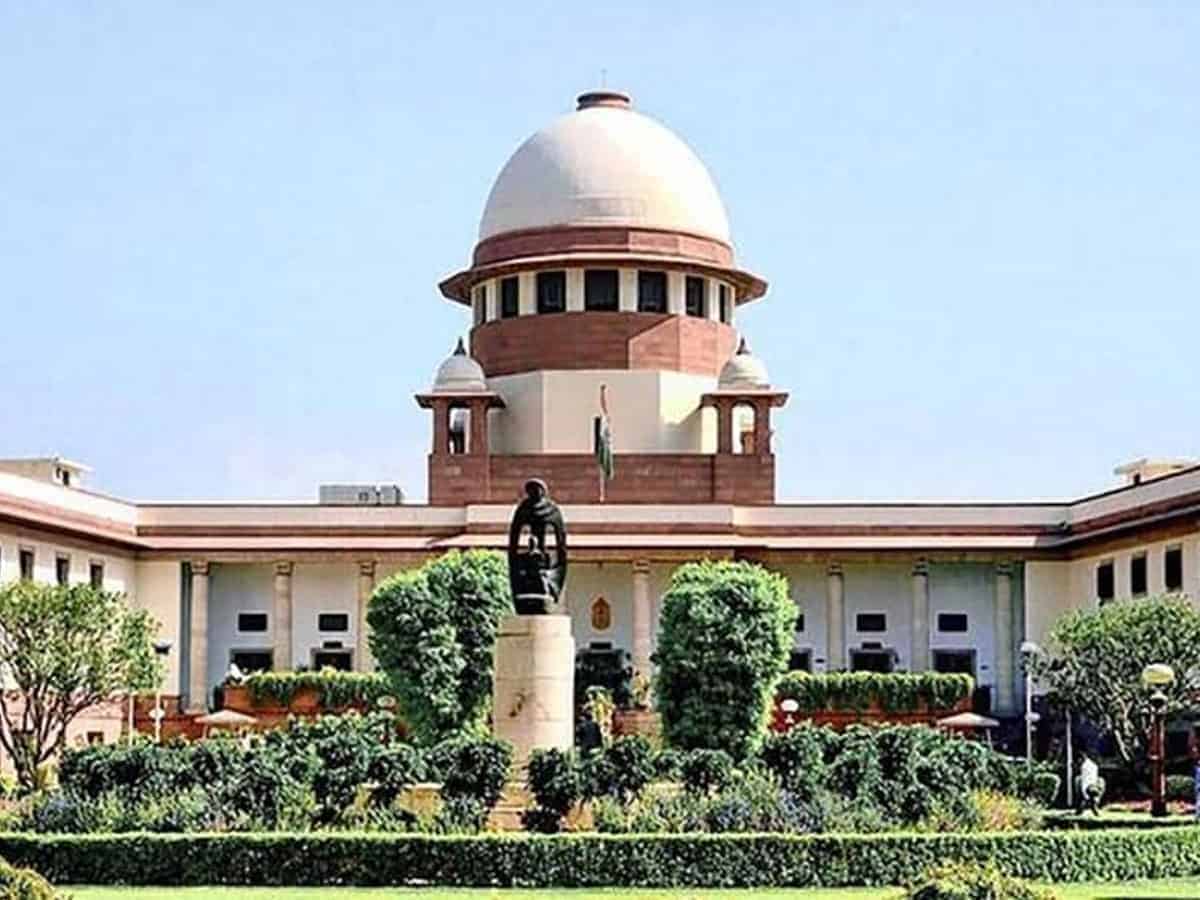
New Delhi: The Supreme Court is scheduled to pronounce its verdict on Thursday on a plea which has alleged that prison manuals of some states in the country encourage caste-based discrimination.
According to the cause list of October 3 uploaded on the apex court website, a bench comprising Chief Justice D Y Chandrachud and Justices J B Pardiwala and Manoj Misra is slated to deliver the judgement on the petition.
The apex court had in January this year sought responses from the Centre and 11 states, including Uttar Pradesh and West Bengal, on the plea.
It had taken note of the submissions of the petitioner’s counsel that jail manuals of these states discriminate in the allocation of work inside their prisons and inmates’ caste determines the places where they are lodged.
The plea referred to the Kerala Prison Rules and said they lay down a distinction between a habitual and a re-convicted convict, holding that those who are by habit a robber, house breaker, dacoit or thief should be classified and separated from other convicts.
It claimed that the West Bengal Jail Code lays down that work in prison should be designated by caste, such as cooking work will be undertaken by dominant castes and sweeping work shall be undertaken by people from particular castes.
While issuing notices to the Union Ministry of Home Affairs and others, the apex court had asked Solicitor General Tushar Mehta to assist it in dealing with the issues raised in the plea filed by Sukanya Shantha, a native of Kalyan in Maharashtra.
The bench had noted the submissions of the petitioner’s counsel that despite the amendments which were made to the state prison manuals in accordance with the model prison manuals formulated by the Union Home Ministry, caste discrimination was reinforced across prisons in the states.
“This petition is filed in public interest under Article 32 of the Constitution of India to bring to the notice of this court the continued existence and enforcement of rules and practices under various state prison manuals that are manifestly grounded in and reinforce caste-based discrimination,” the plea said.
It said the plea seeks appropriate directions for bringing such manuals and prison practices in conformity with the Constitution.



